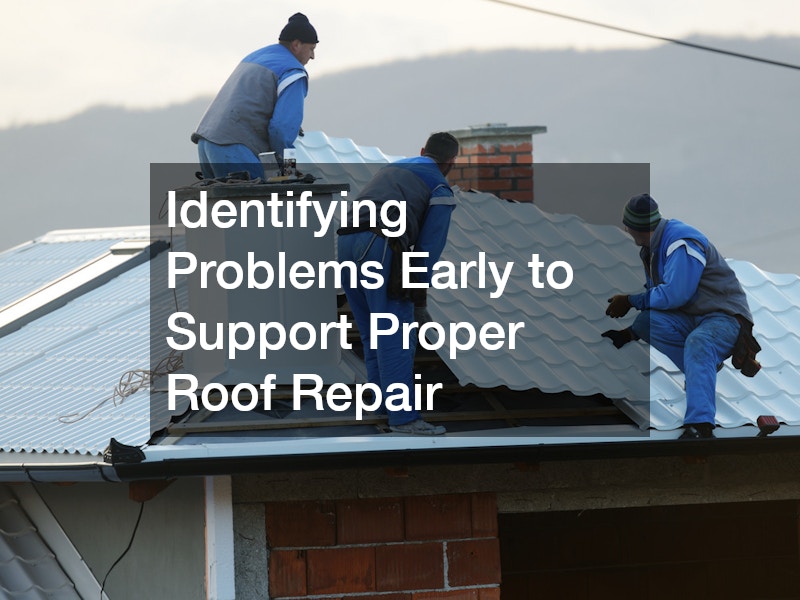Fix It Right: A Homeowner’s Handbook for Managing Structural, Mechanical, and Seasonal Repairs
Maintaining a home is an ongoing responsibility that requires awareness, planning, and the ability to identify issues before they turn into expensive problems. From structural concerns to mechanical systems and seasonal maintenance, homeowners benefit greatly from understanding how to proactively care for their property. A well-maintained home is not only safer and more comfortable but also more valuable in the long run. Even seemingly small issues can escalate if ignored, making it essential to pay attention to the warning signs, schedule timely inspections, and respond decisively when repairs are needed. This guide explores practical strategies for managing home repairs, organized into structural, mechanical, and seasonal categories to provide clarity and actionable insights. Whether you are a new homeowner or a seasoned property manager, having a clear system for addressing problems helps you stay ahead of future damage, reduce repair costs, and maintain peace of mind. By knowing where to look, what questions to ask, and when to call in professionals, you can protect your investment and keep your home functioning efficiently year-round.
1. Understanding the Importance of Gate Installation and Repair
Managing the structural integrity of a home begins with understanding how external features affect overall safety and security. Routine inspections of fences, gates, walkways, and exterior surfaces help identify early signs of wear and potential hazards. One area many homeowners overlook is the need for professional gate installation and repair, which ensures that driveway or property gates operate smoothly and safely. A malfunctioning gate can pose risks, allowing unauthorized access or causing injury if it jams or collapses unexpectedly. Evaluating alignment, rust, and motor function—if powered—helps determine whether maintenance or replacement is necessary. Strong, dependable fencing and gating also contribute to curb appeal and property value, making them an essential part of structural upkeep. Taking the time to assess these features regularly enables homeowners to spot deterioration early and schedule timely corrective steps that prevent costlier issues.
2. Identifying Problems Early to Support Proper Roof Repair

Roofing concerns represent another major structural area that demands proactive attention because even small problems can quickly escalate. Beneath the shingles lies an interconnected system of underlayment, flashing, and support structures that work together to protect your home from the elements. Engaging a specialist for roof repair when you notice leaks, missing shingles, or staining on ceilings can prevent serious damage, including mold growth or structural rot. Even if no obvious signs are present, annual inspections help detect subtle problems early. Homeowners should also check for damaged vents, loose tiles, and worn-out flashing that may be hidden from ground level. Understanding how weather, age, and debris contribute to wear helps you manage repairs effectively and extend the lifespan of your roof. A reliable roofing system enhances energy efficiency, protects your interior, and strengthens overall home durability, making consistent monitoring a worthwhile investment.
3. Organizing Home Projects With Dumpster Rental Services
When planning larger exterior projects, such as major clean-outs, renovations, or storm cleanup, homeowners often benefit from using dumpster rental services to handle debris efficiently. Clearing waste promptly helps avoid safety hazards, reduces clutter, and ensures that repairs or improvements proceed without delays. Renting an appropriate-sized container also makes it easier to separate materials and dispose of them responsibly. This is especially useful when disposing of construction materials, roofing debris, yard waste, or damaged furniture resulting from storm or water damage. A clean work environment allows contractors to navigate more easily and prevents homeowners from having to make repeated trips to local disposal sites. Understanding waste management logistics during repair projects streamlines the process and supports more efficient home maintenance planning. Taking advantage of debris removal services ensures that your property remains safe, tidy, and compliant with local disposal regulations.
4. Maintaining Heating Systems Through Furnace Repair Companies

Mechanical systems play a central role in home comfort and efficiency, and they often require regular monitoring and timely repair. The heating system, in particular, must be checked frequently to ensure it operates safely during colder months. When homeowners struggle with inconsistent temperatures, unusual noises, or skyrocketing utility bills, it’s wise to consult furnace repair companies that specialize in diagnosing and resolving heating issues. A licensed technician can inspect ignition systems, filters, blowers, and heat exchangers to determine what repairs are needed. Properly maintained heating systems last longer and perform more efficiently, offering significant improvements in comfort and safety. Staying proactive with annual inspections, filter replacements, and system cleanings minimizes the likelihood of emergency breakdowns. By understanding the signs of a struggling furnace and knowing when to call in professionals, homeowners can protect both their property and their household’s safety.
5. Responding to Hazy Windows to Improve Energy Efficiency
Windows not only influence aesthetic appeal but also affect energy efficiency and indoor comfort. Over time, homeowners may notice hazy windows that indicate seal failure or moisture buildup between glass panes. This condition reduces visibility, compromises insulation, and signals that the window is no longer performing properly. Addressing this issue promptly helps maintain indoor temperature balance and prevents condensation-related problems such as mold or wood rot. Depending on the severity, solutions may range from replacing window seals to installing new insulated glass units. Understanding how environmental conditions, aging materials, and installation quality contribute to this problem can guide homeowners in making long-term improvements that enhance overall energy efficiency. By assessing window conditions regularly, homeowners maintain better control over utility costs and keep their living environment more comfortable and visually appealing.
6. Maintaining Cooling Systems With AC Repair Services

Cooling system performance is another essential component of mechanical home maintenance, especially in regions with warm climates. When homeowners notice weak airflow, inconsistent cooling, or unusual odors, it may be time to consult specialists who offer ac repair services to restore proper system function. These technicians evaluate refrigerant levels, inspect coils, test electrical connections, and assess thermostat accuracy to ensure efficient cooling performance. Since neglected air conditioning systems tend to use more energy and break down more frequently, regular tune-ups help prevent unexpected failures. Seasonal maintenance not only extends the lifespan of your HVAC system but also enhances indoor air quality and temperature stability. Proactively caring for your air conditioning unit contributes to a healthier and more energy-efficient home environment, ensuring reliable cooling throughout the warmest months of the year.
7. Ensuring Clean, Safe Water With Water Filtration Systems
Water quality is a significant factor in maintaining the health and comfort of a household. When homes rely on filtration devices or wells, they benefit from monitoring and upgrading their water filtration systems to ensure consistent access to clean, safe water. These systems reduce contaminants, improve taste, and protect plumbing fixtures from sediment buildup. Regular inspections involve checking filters, evaluating equipment condition, and testing water for impurities that may arise from environmental or mechanical factors. If the system becomes clogged or outdated, water flow may decrease or contaminants may go undetected. Understanding how filtration systems work and when they need servicing helps homeowners maintain better long-term water quality. Incorporating consistent maintenance into your home care routine ensures that every family member enjoys cleaner, healthier water for drinking, bathing, and cooking.
8. Preventing Water Damage Through Prompt Plumbing Repairs

Plumbing infrastructure is another crucial area requiring ongoing vigilance. Slow drains, leaks, strange odors, or changes in water pressure often indicate underlying issues that demand professional plumbing repairs to prevent further damage. Some concerns, such as pipe corrosion or hidden leaks, may not be immediately visible yet still cause significant long-term harm if left unresolved. Addressing plumbing problems promptly protects flooring, walls, and foundations from water-related deterioration. It also helps maintain water efficiency and reduces the chance of mold growth. Calling a licensed professional ensures proper diagnosis using specialized tools that detect leaks behind walls or under floors. Maintaining a reliable plumbing system significantly reduces stress for homeowners and safeguards the structural integrity of the entire property.
9. Recovering From Property Loss With Fire Damage Repair
Homeowners occasionally face sudden, unexpected issues that require urgent attention, especially after severe weather or internal accidents. One of the most serious problems that can arise is structural or property damage resulting from fire-related incidents. While prevention is always preferable, situations may occur that require immediate fire damage repair to restore safety and minimize lasting effects. Smoke, soot, and structural damage often compromise indoor air quality and weaken building materials, making professional assessment and remediation essential. Restoration specialists evaluate the extent of the damage, remove hazardous materials, and implement solutions that return the home to a safe and livable condition. They also help address lingering odors and inspect affected wiring, insulation, or drywall to reduce future risks. Understanding how fire restoration processes work enables homeowners to respond calmly and efficiently during emergencies.
10. Managing Water Flow and Protecting Foundations With Downspouts
Water management is another critical component of maintaining the home’s exterior, especially during rainy or stormy seasons. Ensuring that gutters and drainage systems operate efficiently helps protect the foundation, siding, and landscaping from water damage. Homeowners should periodically inspect downspouts for blockages that prevent proper water flow. When these components malfunction, water can pool around the foundation, seep into basements, or erode soil around the property. Simple maintenance steps—such as clearing debris, tightening loose brackets, or extending downspouts away from the home—can dramatically reduce moisture-related damage. By incorporating gutter and drainage inspections into seasonal upkeep schedules, homeowners minimize the risk of costly structural repairs. Effective water management improves overall home stability and reduces long-term wear on exterior materials.
Managing structural, mechanical, and seasonal home repairs requires consistent attention and informed decision-making. By understanding how each part of the home functions and keeping up with routine inspections, homeowners can significantly reduce the likelihood of major issues. Whether addressing roof or window concerns, monitoring mechanical systems, or preparing for seasonal changes, taking proactive steps leads to greater efficiency, safety, and peace of mind. This comprehensive guide illustrates how being attentive to the small details—such as drainage, filtration, or exterior maintenance—can prevent long-term damage and protect your investment. Every repair, whether big or small, contributes to a safer, stronger, and more comfortable home. When you approach home maintenance with confidence, organization, and a willingness to ask for professional help when needed, you build a lasting foundation for security and long-term property value.
Adding to this, homeowners who approach maintenance with a long-term perspective often experience fewer emergencies and enjoy a more predictable upkeep routine. Thinking ahead about the changing seasons, the demands of various systems, and the aging of materials helps you recognize patterns and anticipate future needs before they become urgent. For example, planning roof inspections before storm season or addressing window seals before extreme temperature changes can make a significant difference in preventing costly damage. Similarly, maintaining mechanical systems at regular intervals reduces stress on the equipment, ensuring more reliable performance and longer system lifespans. By establishing a yearly home care calendar and updating it as needed, homeowners maintain better control over repair tasks and stay organized throughout the year. Documenting repairs, improvements, warranties, and inspection results creates a valuable long-term record that helps you track home health and make informed decisions moving forward. Embracing a mindset of consistent care not only protects the structural integrity of your home but also strengthens your confidence as a homeowner. With each proactive step, you’re reinforcing a safer, more resilient environment where small problems are resolved quickly and greater disruptions are less likely to occur. Ultimately, this commitment to thoughtful maintenance empowers you to preserve your investment, enhance daily comfort, and enjoy the long-term rewards of a well-cared-for home.


